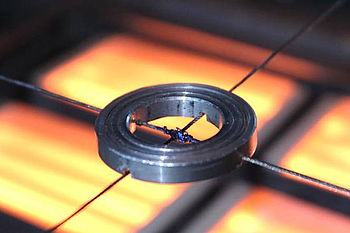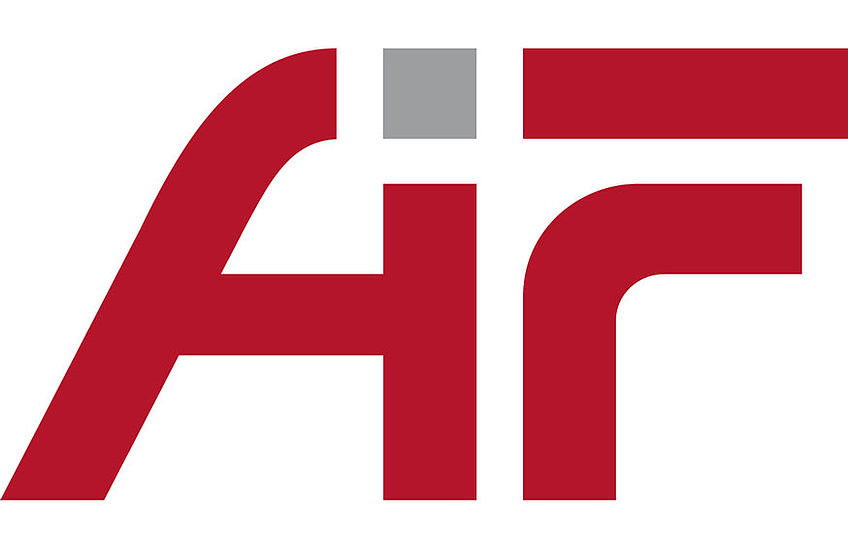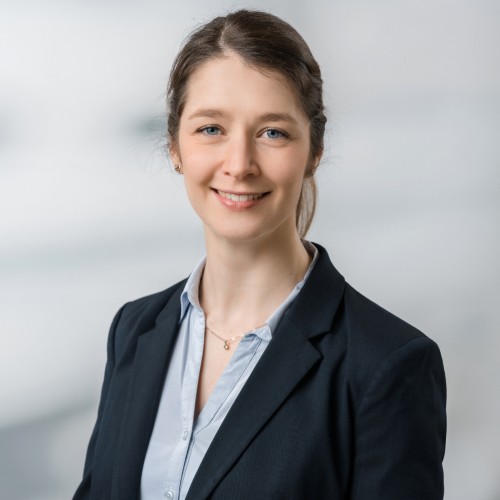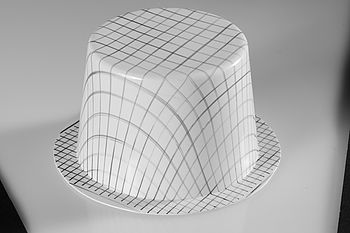Increase material efficiency in thermoforming
Development of an easy-to-upgrade process for profiling the temperature of semi-finished products

Through the constant further development of thermoforming machines (e.g. optimisation of the process and the instrumentation & control system), the cost of the material in thermoformed products can account for as much as 90 % of the total production costs. Material-efficient production is thus essential in order to further increase the economic efficiency of the process.
Homogenisation of the wall thickness distribution of thermoformed parts offers high potential for optimising material efficiency. To attain the desired homogenisation, the highly temperature-dependent forming behaviour of plastics can be utilised to produce a temperature profile on the semi-finished plastic product during the heating-up process. Temperature profiling can counteract the differing degrees of stretching of conventionally moulded parts so that the wall thicknesses of the parts are homogenised by uniform stretching.
As part of a project supported by the Confederation of Industrial Research Associations "Otto von Guericke" e.V. (AiF), the implementation of aluminium masks in a thermoforming machine for the production of a temperature profile by shadowing and the systematic analysis of the influences on the wall thickness distribution are investigated.
Aim of the research
The aim of this research project is to improve material efficiency through homogenisation of the wall thickness distribution of thermoformed parts in order to further enhance the economic viability of thermoforming. For this purpose, the geometric and process-related influences on the process are empirically examined and optimised with regard to achieving as homogeneous a wall thickness as possible. The dimensions of the thermoforming unit, especially the distance of the radiant heater from the mask and semi-finished plastic product, as well as the geometric dimensions of the aluminium masks have a decisive influence on the temperature profiling and thus on the local wall thicknesses. Homogenisation of the wall thickness distribution also leads to improved top-load properties in the specimen beakers. In addition to material savings of up to 33 %, temperature-profile beakers have, with the same thickness of the semi-finished product, a top-load stability that is up to 400 % higher than that of conventionally produced beakers. Furthermore, by linking up the simulation of the radiation, heating-up and forming, the process can for the first time be simulated in its entirety, with the result that pre-dimensioning of masks is possible without empirical preliminary trials.
This project is promoted by

Do you have any questions on this project?

Lisa Leuchtenberger, M.Sc.
Head of department Extrusion and Rubber Technology Head of the circular economy working group +49 241 80-28372 lisa.leuchtenberger@ikv.rwth-aachen.deDo you have any questions on this topic? Please don't hesitate to call me or send me a message.

